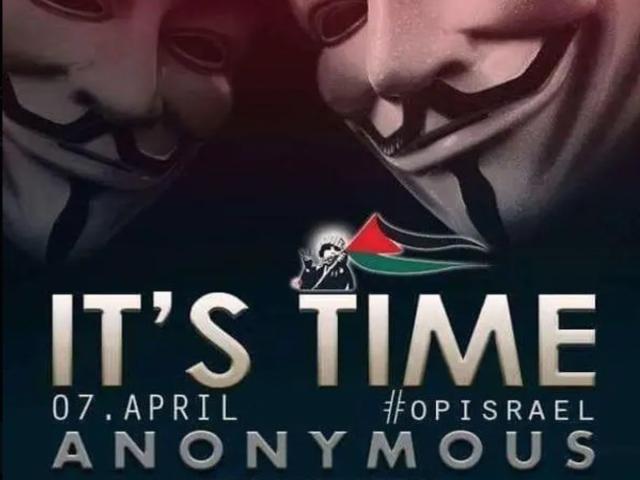As the 11th anniversary of "OpIsrael" approaches on April 7, Radware has issued a new Threat Advisory alerting to the increased cyber threats facing Israel. This annual campaign, which targets Israeli websites, has consistently attracted new hacktivist groups each year, voicing their opposition to Israeli military actions. The current year's efforts are distinguished by a higher degree of coordination and sophistication among participants. They utilize hashtags to form temporary alliances, significantly expanding the scope of their attacks.
This year's commencement of #OpIsrael is particularly significant as it coincides with the six-month mark of the onset of hostilities between Israel and Hamas on October 7, 2023. The timing also aligns with Iranian Jerusalem Day, celebrated on April 5, suggesting a potentially more prominent role for Iran following its escalated support for Hamas last October.
🏴☠️ This message is from Anonymous and free international hacker groups 🔻#OpIsrael 7 April - Since 2013 by #Anonymous #FreePalestine 🇵🇸 ✌️🏽pic.twitter.com/xhvGdx4SHu
— Anonymous News 🌐 (@Anonymous_Link) April 6, 2024
Among the newcomers to the campaign are entities like the Ketapang Grey Hat Team and the Anonymous Collective, joining forces with veteran groups. The primary targets of these cyberattacks are often financial services and government offices, identified as high-risk due to the potential for widespread disruption they present. The evolving threat landscape is marked by an increase in Web DDoS attacks, indicating a sophisticated understanding of application vulnerabilities. As such, there is a critical need for robust layer 7 DDoS protection to safeguard against the potential surge in hacktivist activities from April 7 onward.
The inception of #OpIsrael traces back to 2013, launched by Anonymous hackers on the eve of Holocaust Remembrance Day, marking the campaign as an annual event. Despite the initial campaign being deemed a failure by the Israeli Government's National Cyber Bureau and security experts, due to no reported physical damage, the attacks have garnered praise from Hamas, the militant Islamist group governing the Gaza Strip. Hamas spokesman Ihab al-Ghussain lauded the efforts of the cyber soldiers participating in the campaign.
📍Our brothers from Tunisia carried out a major attack on the Israeli electronic infrastructure
— 🔻Anon_Gaza🇵🇸 (@AnonOzzyDude) April 6, 2024
Their attack caused the disruption of many websites and networks #OpIsrael #LulzSec_Muslims pic.twitter.com/HwKcUgqZWO
The campaign has not only drawn reactions from within the regions involved but also international commentary. The Tunisian Renaissance Party, led by Rashid Al-Ghannouchi, initially condemned the cyberattacks, threatening legal action against Tunisian participants for compromising the security of a foreign state. This stance sparked a domestic backlash, with Tunisian lawyers offering free defense to those charged with cyber offenses against Israel. Subsequently, the Renaissance Party clarified that their initial statement was the result of their website being hacked, stating their actual stance does not condemn cyberattacks on Israel.
In response to the attacks, pro-Israel hackers took control of the campaign's website, OpIsrael.com, replacing its content with pro-Israel messages. Despite the DNS record of OpIsrael.com being registered under 'Al Qaeda,' organizers of OpIsrael denied any association with that site, instead claiming OperationIsrael.tk as their official platform.
As we approach April 7, it is clear that the landscape of cyber warfare continues to evolve, with both sides demonstrating increased sophistication and resolve. The convergence of historical grievances, technological prowess, and international politics underscores the complexity of the challenges facing cyber security in the region.


